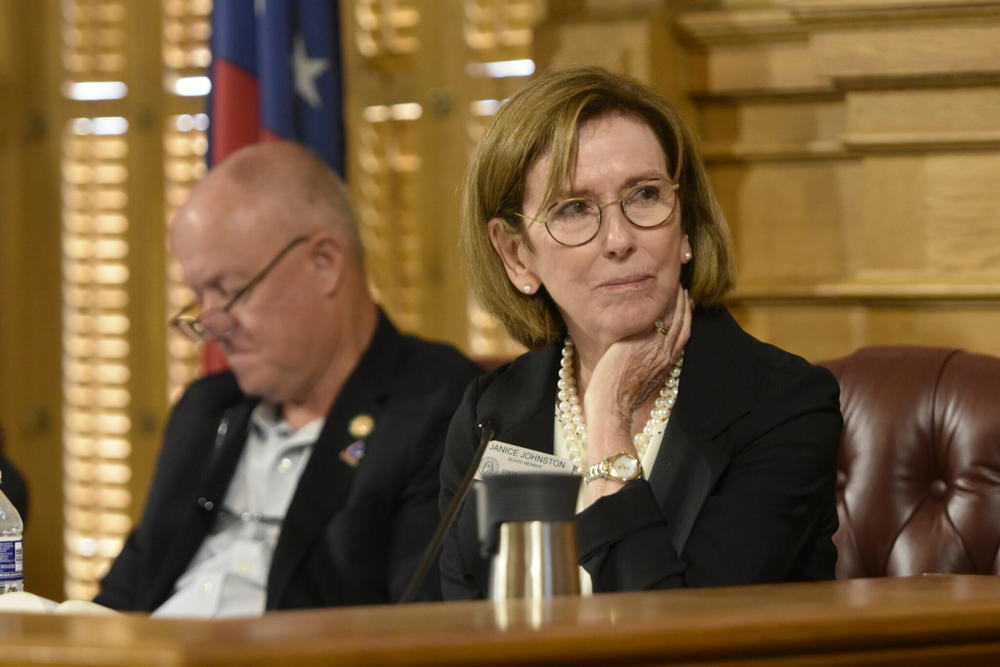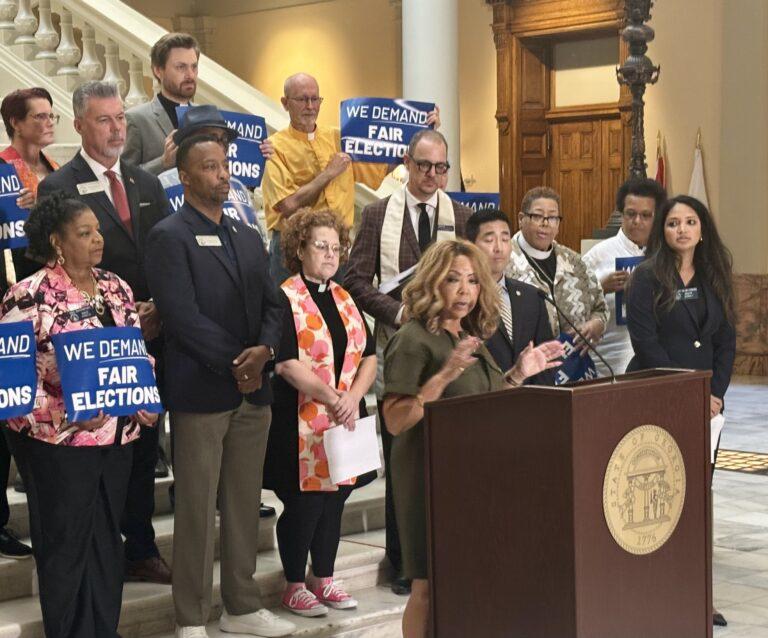
Caption
Georgia Election Board member Janice Johnston voted Sept. 23 in favor of the board opening an investigation into eight county boards that review mass voter eligibility challenges filed predominantly by conservative residents.
Credit: Ross Williams / Georgia Recorder


